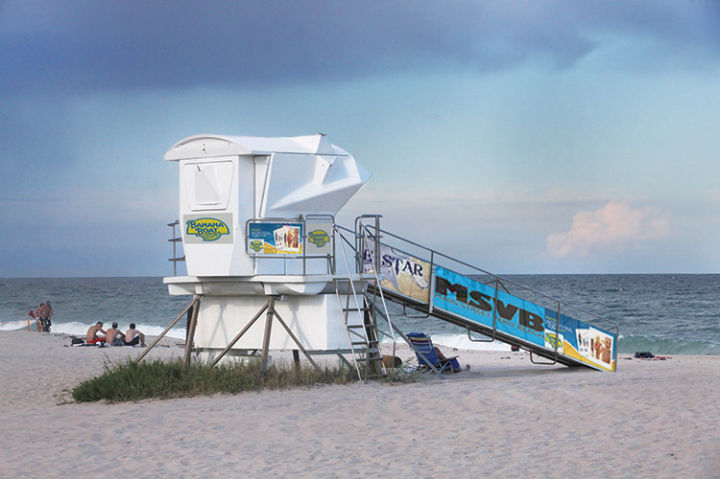
VERO BEACH — This past holiday weekend, tourists and locals alike enjoyed Vero’s pristine beaches.
No advertising signs stared them in the face and no merchants tried to sell them anything in the free parking lots.
But soon that will all change, in an effort to generate $2 million for city recreation.
With property owners seemingly disinclined to accept tax increases to pay for Vero’s many amenities, city staff has had to get creative.
So last month the City Council approved two proposals to generate revenue from the beaches by commercializing the shoreline with advertising slapped on lifeguard stands and a hot dog cart wheeled up in the parking lot at South Beach Park.
The City Council hedged its approval, saying the hot dog cart was “a one-year experiment.”
The advertising on the lifeguard stands, once in place, would most likely stay for at least three years as staff said the vendor would need to cover his initial investment in the signage.
Councilman Dick Winger expressed the most concern about the two proposals, which had sailed through the recreation commission.
Winger thought the city should take a step back and formulate an overall vision for the potential monetization of recreational venues.
“I think we should take 30 days,” he said, for the public to get used to the idea. Yet, in the end, Winger ended up reluctantly voting for the two measures.
Staff estimates the hot dog stand will go live next week.
Lifeguard stand advertising will take longer, but should be in place when the bulk of the snowbirds return to Vero this fall.
Vice Mayor Tracy Carroll voted in favor because the move fits with her aim to make Vero more friendly to people trying to make a living.
“I’m all for small business, and this is the smallest of businesses,” Carroll said of the hot dog stand sought by Central Beach resident Gary Froonjian of B&G Jersey Hot Dogs LLC.
There was no discussion on whether the commercialization of the city’s beaches makes sense given the amount of revenue to be gained.
Providing year-round lifeguard protection at the city’s three public beach parks is expensive, but the vendor proposals are expected to bring in only a pittance in comparison.
Staff estimates only about $13,000 will be collected from sales of advertising space on the lifeguard stands, and the city will get 10 percent of gross receipts from hot dog sales.
Potential total income from hot dogs, chips, frozen treats and cold drinks is unknown, but even if gross sales approached $1,000 per week, revenue into city coffers would be a minimal $5,200 per year.
“The cost estimates (to operate) the two full-time lifeguard towers at Jaycee and South are $219,000 each and for Humiston, which is not fulltime, it is $135,000. The normal yearly full-time tower costs range between $185,000 and $225,000 per year,” said Recreation Director Rob Slezak.
Though lifeguard stand advertising must go out for bid with a Request for Proposal, Slezak said the pitch was made by Eye Level Digital, the company which sells ad space on the county’s GoLine buses.
He said the city would adopt standards similar to GoLine as to types of products, services and images that would be acceptable for display on lifeguard stands.



